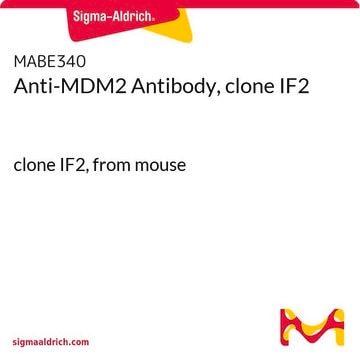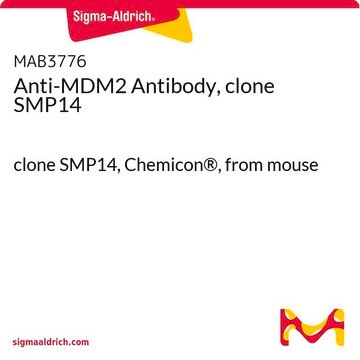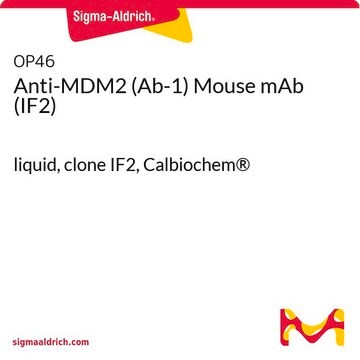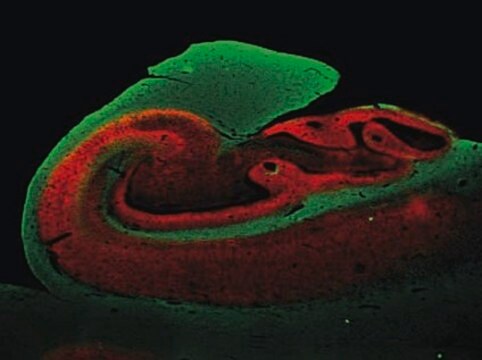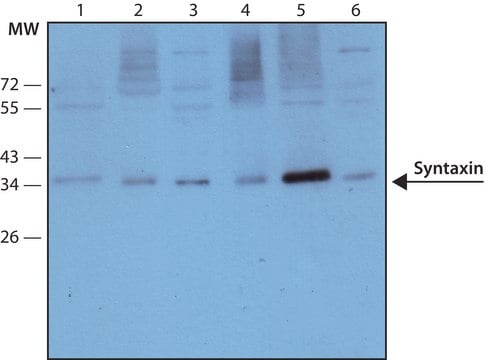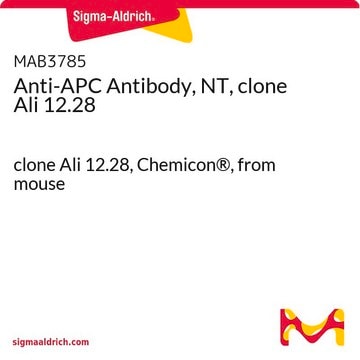MABE331
Anti-MDM2 Antibody, clone 4B2C1.11
clone 4B2C1.11, from mouse
Synonym(s):
E3 ubiquitin-protein ligase Mdm2, Double minute 2 protein, Hdm2, Oncoprotein Mdm2, p53-binding protein Mdm2
About This Item
Recommended Products
biological source
mouse
Quality Level
antibody form
purified immunoglobulin
antibody product type
primary antibodies
clone
4B2C1.11, monoclonal
species reactivity
human, mouse
technique(s)
immunocytochemistry: suitable
immunoprecipitation (IP): suitable
western blot: suitable
isotype
IgG1κ
NCBI accession no.
UniProt accession no.
shipped in
wet ice
target post-translational modification
unmodified
Gene Information
human ... MDM2(4193)
mouse ... Mdm2(17246)
Related Categories
General description
Immunogen
Application
Immunocytochemistry Analysis: A representative lot from an independent laboratory detected MDM2 in SV5-tagged, fusion p53-EGFP transfected H1299 cells (Hjerpe, R., et al. (2010). 42(5):725-735.).
Epigenetics & Nuclear Function
Cell Cycle, DNA Replication & Repair
Quality
Western Blot Analysis: 0.25 µg/mL of this antibody detected MDM2 in 10 µg of mouse brain tissue lysate.
Target description
Physical form
Storage and Stability
Analysis Note
Mouse brain tissue lysate
Other Notes
Disclaimer
Not finding the right product?
Try our Product Selector Tool.
recommended
Storage Class Code
12 - Non Combustible Liquids
WGK
WGK 1
Flash Point(F)
Not applicable
Flash Point(C)
Not applicable
Certificates of Analysis (COA)
Search for Certificates of Analysis (COA) by entering the products Lot/Batch Number. Lot and Batch Numbers can be found on a product’s label following the words ‘Lot’ or ‘Batch’.
Already Own This Product?
Find documentation for the products that you have recently purchased in the Document Library.
Our team of scientists has experience in all areas of research including Life Science, Material Science, Chemical Synthesis, Chromatography, Analytical and many others.
Contact Technical Service